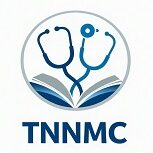Benefits to pursuing a career in Nursing: Information updated by Chief Editor on 10th April 2025.
Whether you’re currently in high school and unsure about your career, a college student looking for a goal-orientated route, or someone contemplating entering a field where they realise they can make a long-lasting impact, there are various reasons to consider a career in nursing.
Skilled, compassionate nurses could not be more in demand.
The U.S. Bureau of Labour Statistics indicates that from 2022 to 2032, there will be nearly 177,400 annual openings for registered nurses.
1. Unmatched Job Security and Soaring Demand
It is not just about a job; it reflects a severe need for our health system and the value of the nursing profession. Nursing is, therefore, more than just employment.
It’s a stable, evolving, and profoundly satisfying career direction offering the best personal and professional development and financial benefits.
Choosing nursing is about scientific knowledge, thoughts, and human connection.
Here are only ten of the many reasons why nursing is an excellent career option today:
The number of registered nursing positions is not only substantial, but it is also increasing.
BLS Projections: According to the BLS, employment of RNs is projected to grow 6 per cent from 2022 to 2032, faster than the average for all occupations. That translates into hundreds of thousands of job openings created through growth and because nurses are retiring or leaving the profession.
Nursing Shortage: Some reasons for a well-documented nursing shortage include an ageing population requiring more health care services, a substantial portion of the nursing workforce nearing retirement age, and increased access to health care in many areas in the U.S. and globally. The American Association of Colleges of Nursing (AACN) often prioritises these workforce issues and the critical need for new nurses.
Essential Workforce: Nurses Are No. 1. Pandemics and natural disasters, as well as routine health needs, underscore the indispensable functions nurses provide in hospitals, clinics, schools, long-term care facilities, and communities. This vital status also translates directly into robust job security.
That high demand can mean that upon graduation and licensure, qualified nurses have several job opportunities to choose from, and they’ll have peace of mind and stability that are difficult to come by in other industries. Written by: Keywords: nursing job security, high demand nurses, nursing workforce projections, nursing shortage

2. Competitive salaries and high earning potential
The nursing profession provides emotional rewards and financial compensation, given the level of skill, responsibility, and commitment the job requires.
A Good Beginning Salary: Registered nurses earned a median annual wage of $81,220 in May 2022, according to the BLS. It is well above the median yearly wage for all occupations. Salaries for entry-level positions depend on location, facility, and education, but they typically offer a living wage above the poverty line.
An associate degree in nursing (ADN) provides entry into the profession, but a bachelor of science in nursing (BSN) prepares nurses for higher earnings and career advancement. Current nursing practice guidelines, especially within magnet hospitals (facilities recognised for excellence), encourage and sometimes require BSN-prepared nurses to hold specific positions, particularly leadership roles. Over time, research has consistently demonstrated a pay premium for BSN nurses versus ADN nurses. [Internal Link Placeholder: BSN vs ADN Salaries — Learn More]
Risk Vs Heartbreaking Earnings: Advanced… (Oct 2023) Nurse Practitioners (NPs), Certified Registered Nurse Anaesthetists (CRNAs), Certified Nurse-Midwives (CNMs), and Clinical Nurse Specialists (CNSs), all of whom fall into the Advanced Practice Registered Nurse (APRN) category, receive exorbitantly higher wages. For instance, the BLS listed the median annual salary for Nurse Practitioners (NPs) as $125,900 in May 2022; for Nurse Anaesthetists, it was $203,090.
Progress over time: Salaries generally rise with years of experience, specialisations, certifications, and taking on management roles. Overtime, shift differentials (extra pay for evenings, nights, and weekends), and bonuses can improve earning potential.
Nursing offers a lucrative return on investment and a pathway to financial stability compared to many other professions requiring a similar education level. Keywords: nurse salary, BSN salary, RN income, nursing earning potential, APRN salary
3. A Universe of Options and Specialisations
Almost every interest and personality type can find a path in the vast nursing field. The moment you become an RN, you will have numerous specialities available. This aspect of the nursing niche allows for career mobility and the ability to pivot to new areas without leaving the profession.
Consider just a few examples:
Acute Care: ER, ICU, CCU, OR, Med-Surg, Labor & Delivery, NICU, PICU
Chronic Care & Outpatient: Clinics, Physician Offices, Dialysis Centres, Rehabilitation Centres, Home Health Care.
Community & Public Health: Public Health Departments, School Nursing, Occupational Health, Parish Nursing
Specialised Populations: Paediatrics, Gerontology, Oncology (Cancer Care), Psychiatry/Mental Health, OB/GYN (Obstetrics & Gynaecology).
Beyond the bedside: Nursing Informatics (health data & technology management), Nurse Educator (teaching future nurses), Nurse Researcher, Legal Nurse Consultant, Forensic Nursing, Case Management, Telehealth Nursing, Pharmaceutical Sales, and Healthcare Administration.
This diversity of specialities allows you to customise your career according to your interests, whether keeping up with fast-paced, high-tech medicine in an intensive care unit or spending time with patients in a clinic or home health setting. Having the option to switch between specialities creates ongoing educational opportunities and protects against career stagnation. Title: Six Diverse Career Paths in Nursing: Exploring Your Options Keywords: nursing specialities, types of nursing jobs, nursing career paths, nursing flexibility
4. Clear Ladders for Advancement and Leadership
Nursing has clear structures for career trajectory and leadership. It’s a profession in which experience and continued education lead to greater authority, independence, and impact.
Your adventure begins here if you are a nurse with an ADN or a BSN. Several ADN nurses later returned to school and completed RN-to-BSN bridge programmes (with many employers providing tuition support). An MSN or DNP can lead not only to a nurse practitioner (NP), certified registered nurse anaesthetist (CRNA), nurse midwife (CNM), or nurse specialist (CNS) role but also to a leadership or academic position. Learn More: RN-to-BSN Programs Guide [Internal Link]
Clinical Ladder Programs—Many hospitals have implemented clinical ladder programs that recognise and reward nurses who exhibit advanced clinical skills, seek certifications, are prominent mentors, and participate in quality improvement projects. These programmes allow nurses to advance without formally becoming managers.
Advancement on the Leadership Ladder: Seasoned professionals may transition into charge nurse roles (overseeing a shift), nurse manager positions (leading a unit), nursing supervisor, director of nursing, or chief nursing officer (CNO)/chief nursing executive (CNE)—senior leadership positions that shape the delivery of care across an organisation.
Education and Research: If you enjoy teaching, you can become a Nurse Educator in academic institutions or clinical settings. Some may take on research roles, supporting evidence-based practice and strengthening nursing science.
Nursing entrepreneurship: Some experienced nurses create consulting firms, home health agencies, or specialised clinics.
One outstanding benefit of a nursing career is the potential for advancement. Keywords: nursing career growth, leadership roles in nursing, nursing career ladder, MSN nursing careers, DNP roles.
5. Remarkable Flexibility in Work Settings and Schedules
Forget the myth that nursing is limited to hospital wards and regimented 9-to-5 hours. Real life is much more adaptable, accommodating different lifestyles and preferences.
Wide Settings: Though hospitals are the most significant employers of RNs, nurses work almost anywhere health is provided:
Offices of Physicians and Other Health Practitioners
Home Healthcare Services
Nursing Care Facilities (Long Term Care)
Correctional Facilities
Education (K-12 and Universities)
Military Bases (At Home and Overseas)
Government Agencies (Public Health)
Outpatient Care Centers
Insurance Companies
For In-House/Corporate Settings (Occupational Health)
Telehealth Platforms (Remote nursing)
Cruise Ships
Summer Camps
Variety of Schedule Choices: Few careers have the scheduling flexibility found in nursing:
Rotate: Hospitals are based on 8-hour or 12-hour shift systems, including days, evenings, and nights. As a result, working three 12-hour shifts per week—affording four days off—is common.
Part-Time & Per Diem: Many nurses work part-time or per diem (as needed), with flexibility to accommodate family, education, or other commitments.
Weekends/Holidays: All (or nearly all) of your shifts will be on nights, weekends, and holidays. Some roles (clinics, schools) are Monday through Friday.
Travel Nursing: Experienced nurses accept short-term postings (usually 13 weeks) in various cities or states, often resulting in high pay and housing stipends. [Link Internal — The Travel Nursing Adventure Begins Here]
Telehealth: As it becomes more prominent in nursing, there are more opportunities to provide consultations, care management, and data management (like entering and maintaining patient data) from any location, keeping you and your patients safe.
This fluidity enables nurses to create work-life integration that serves their requirements at various points throughout their lives. Writing Role: Freelance Writer Keywords: Flexible nursing jobs Nursing work schedules Where do nurses work Travel nursing Telehealth Nursing
6. Deeply Meaningful and Purpose-Driven Work
Aside from the practical advantages, many pursue nursing for its intrinsic rewards. It’s a career that revolves around compassion and care—and making a real impact in people’s lives in their most vulnerable times.
Human Connection: Nurses forge special bonds with patients and their families, providing comfort, support, and advocacy. They are often there for some of life’s defining moments: birth, death, illness, and recovery.
Making a Difference: Nurses relieve suffering, promote healing, teach patients about their illnesses, and help them take control of their health daily. Observing a patient’s recovery or providing comfort during difficult times brings immense personal satisfaction to nurses.
Advocacy: Nurses are essential in advocating for patients, ensuring their needs are met, their voices are heard, and their rights are upheld in a complex healthcare system.
Support of Society: Nursing is essential for the health and well-being of communities. When nurses care for people, they care for society as a whole.
If the task is challenging, the emotional and psychological rewards of knowing that your work directly improves lives are at the forefront of many nurses’ minds. Having a purpose creates resilience and career satisfaction over the long run. This sentence is unnecessary and should be removed.
7. A Highly Respected and Trusted Profession
Nurses are routinely ranked among our society’s most trusted and respected professions. This public esteem is earned through years of discipline, ethical practice, and unflinching patient advocacy.
Gallup Polls: For over twenty years, the American public has rated nurses highest in integrity and ethical standards in Gallup’s annual poll on Honesty and Ethics in Professions. In the latest polls, well over 80 percent of respondents rate nurses’ honesty and ethical standards as “high” or “very high.”
Professional Trust: Patients depend on nurses for clinical skills, honest information, compassionate care, and advocacy. This trust is essential for healthcare and the nurse-patient relationship.
Becoming Health Ambassadors: People often view nurses as significant community members who advocate for health. This reverence extends from the clinical domain to everyday life.
Ethical Backbone: Nursing is anchored in a robust ethical foundation prioritising patient dignity, respect for confidentiality, accountability, and compassionate care (as established by governing bodies such as the American Nurses Association—ANA). Compliance with these principles is a basis for the profession’s esteem.
For example, you gain professional pride and are confident that what you do matters to the world as an average professional working in a highly ranked profession. Keywords: nurses trusted profession, respect for nurses, nursing ethics, Gallup poll nurses
8. Global Mobility and International Opportunities
A nursing license and skills are incredibly portable, allowing one to work across state lines and potentially worldwide.
National Licensure: Despite state-based licensure in the U.S., the Nurse Licensure Compact (NLC) permits nurses licensed in a member state to practice in other NLC states without needing additional licenses, facilitating mobility for work or travel nursing assignments. Visit the National Council of State Boards of Nursing (NCSBN) to verify the current list of NLC states.
Travel Nursing (Domestic): As discussed, travel nursing within the United States is a popular choice that enables nurses to gain exposure to different healthcare systems, cities, and patient populations, with the added benefit of competitive pay.
Nursing has a Global Demand: Nurses are required in all parts of the world. Working abroad typically requires meeting the specific requirements of the country (licensure exams, language proficiency, visa sponsorship), but opportunities include:
Countries such as the UK, Australia, Canada, New Zealand, and a few Middle Eastern ones are aggressively hiring international nurses.
There are U.S. Military bases overseas.
International non-governmental organisations (NGOs), such as Doctors Without Borders and the Red Cross, provide healthcare assistance.
These could be international schools or multinational companies.
Transferable Skills: The fundamental components of assessment, critical thinking, communication, and patient care are well-respected skills that contribute to a highly mobile career.
Healthcare professionals with an adventurous spirit or a desire to experience different cultures can find unique opportunities for international work and travel in nursing. Click here to learn more about travel nursing, international nursing jobs, nursing license compacts, or working abroad.
9. A Strong, Supportive Professional Community
Becoming a nurse allows you to join an extensive network of team members and organisations dedicated to improving care. You are not the only one to face these struggles in this demanding but ultimately fulfilling career.
Professional Associations: The American Nurses Association (ANA), dozens of state-level nursing associations, and hundreds of speciality nursing organisations (think: Emergency Nurses Association and American Association of Critical-Care Nurses) share unrivalled resources:
Opportunities for Continuing Education
Training for professional development
Care, including workplace and legislative advocacy
Networking events
Staying current with best practices by continuously updating published journals & publications
Certification programs
Mentorship and Collaboration: Nursing is a team-orientated practice. Older nurses often guide younger colleagues, passing along knowledge and experience. In most healthcare units, teamwork is critical, and camaraderie is high among nurses, physicians, therapists, and other healthcare workers.
Safety net: State Boards of Nursing are safety net proponents, establishing the framework to ensure safe and competent practice through education, licensure, and ethical conduct.
Shared Identity: There is a profound shared identity in nursing, born from shared experiences, challenges, and a common calling. These peers provide support, solidarity, and encouragement.
A strong professional framework supports nurses as they address challenges, expand their skills and advocate for themselves and their patients. Keywords: nursing organisations, nurse support networks, ANA member services, nursing support, and nursing mentorship.
10. Commitment to Lifelong Learning and Personal Growth
Continuous education is necessary as new research, technology, and patient needs transform the healthcare landscape. It is a career that requires—and rewards—a commitment to lifelong learning.
Continuing Education (CE): In most states, nurses must complete a specified number of continuing education units (CEUs) to retain their licenses. This feature helps nurses to remain informed about the most recent evidence-based practices, treatments, and technologies. Employers endorse or provide many CE opportunities.
More specialisations: Nurses can choose to be voluntarily credentialed (Certified Emergency Nurse—CEN, Critical Care Registered Nurse—CCRN, Oncology Certified Nurse—OCN, etc.). Certification proves their advanced knowledge and skills, typically boosting their resumes and raising their praise technology. Adaptation: The healthcare landscape constantly evolves due to technological advancements and emerging practices.
Enhancing Critical Skills: Nursing is a practice that naturally develops critical thinking, problem-solving, communication, leadership, and emotional intelligence. This role increases personal and professional development, as each day presents unique challenges and opportunities as you interact with different patients.
Be Curious. The best nurses, with high levels of contentment and success, are constantly curious. They are always keen to learn, improve, and do better for their patients.
September 27, 2023, 12:01 a.m. Continuing education nursing, nursing professional development, nursing certifications, lifelong learning nursing
Innovative, Secure and Rewarding Career in Nursing
Choosing a career path is a significant decision in life. As we explored, the nursing field is an undeniably compelling mix of factors that make it a natural fit for anyone looking for stability, financial security, flexibility and significant work.
The job demand is incredible, the salary is competitive, the variety of specialisations is excellent, and the opportunities for advancement are apparent. However, there are many paths to getting there: nursing is the basis for a long and lucrative career in the workforce. The absences in work settings and working hours make balance easy. You will find nothing more fulfilling than the invaluable aspect of working for others. With one of the most trusted professions, a supportive and solid professional community, and lifelong learning, nursing is not just a job but a calling that upholds the standards of ensuring we are invaluable to the health of those we care for.
Nursing is worth considering if you prefer a career that tantalises your brain, stimulates your heart, and buoys up your future. The bachelor of science in nursing (BSN) is typically the most beneficial nursing degree for creating pathways for long-term career advancement and opportunity in this dynamic field.
Want to walk this fulfilling path? Start on your career path for the future in nursing.
Find accredited BSN programs in your area and enrol immediately!



